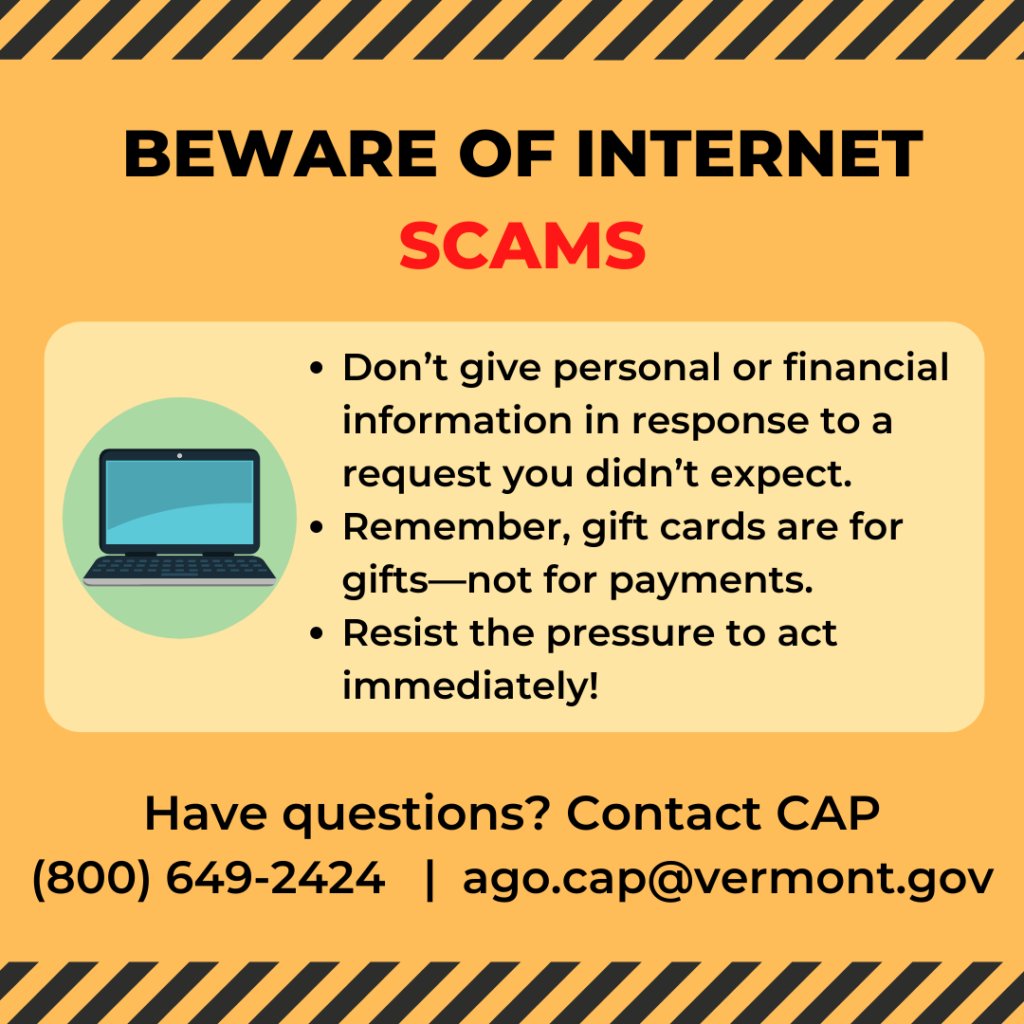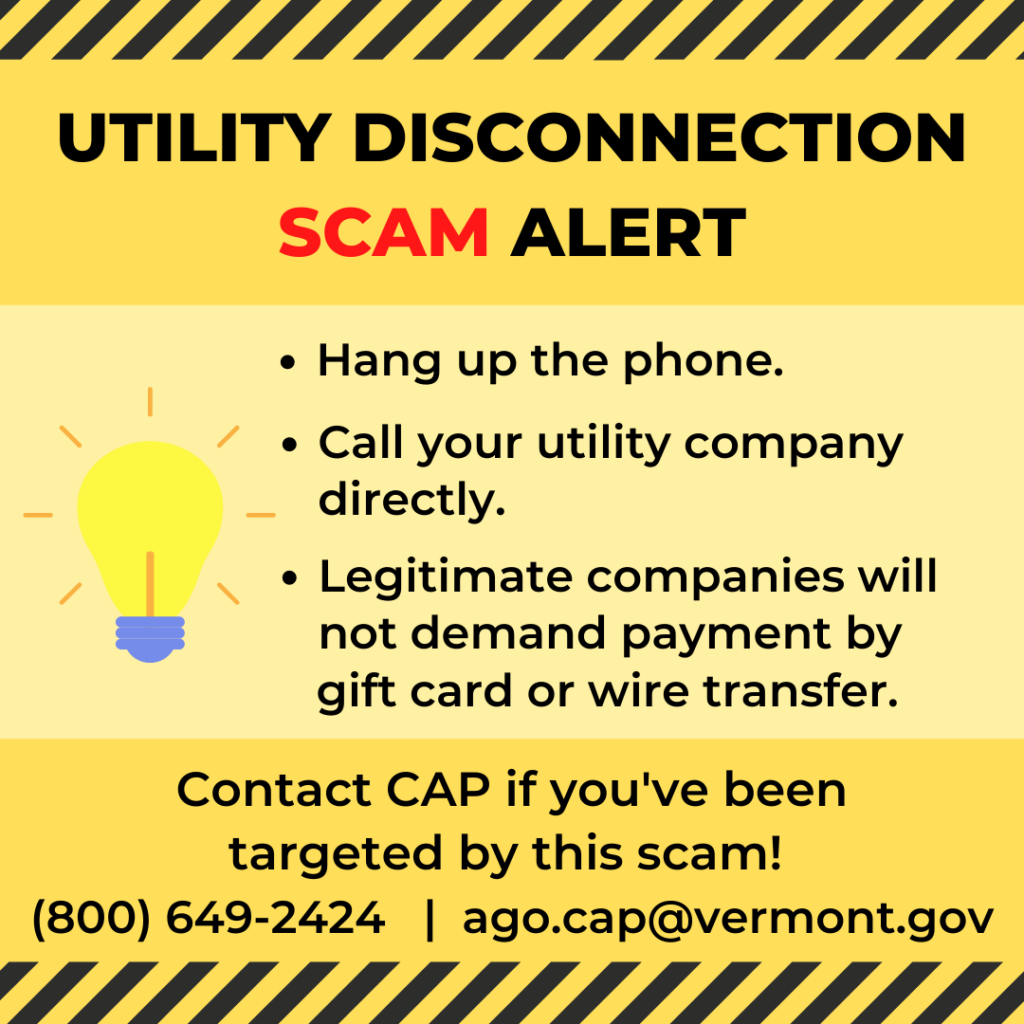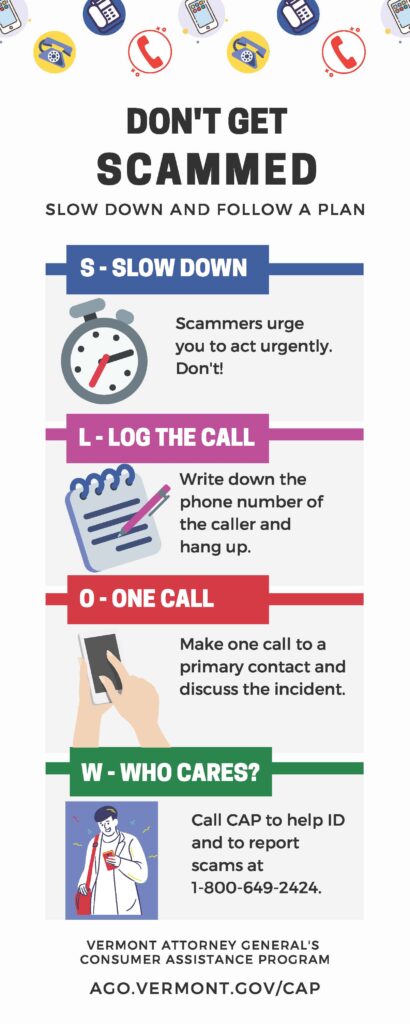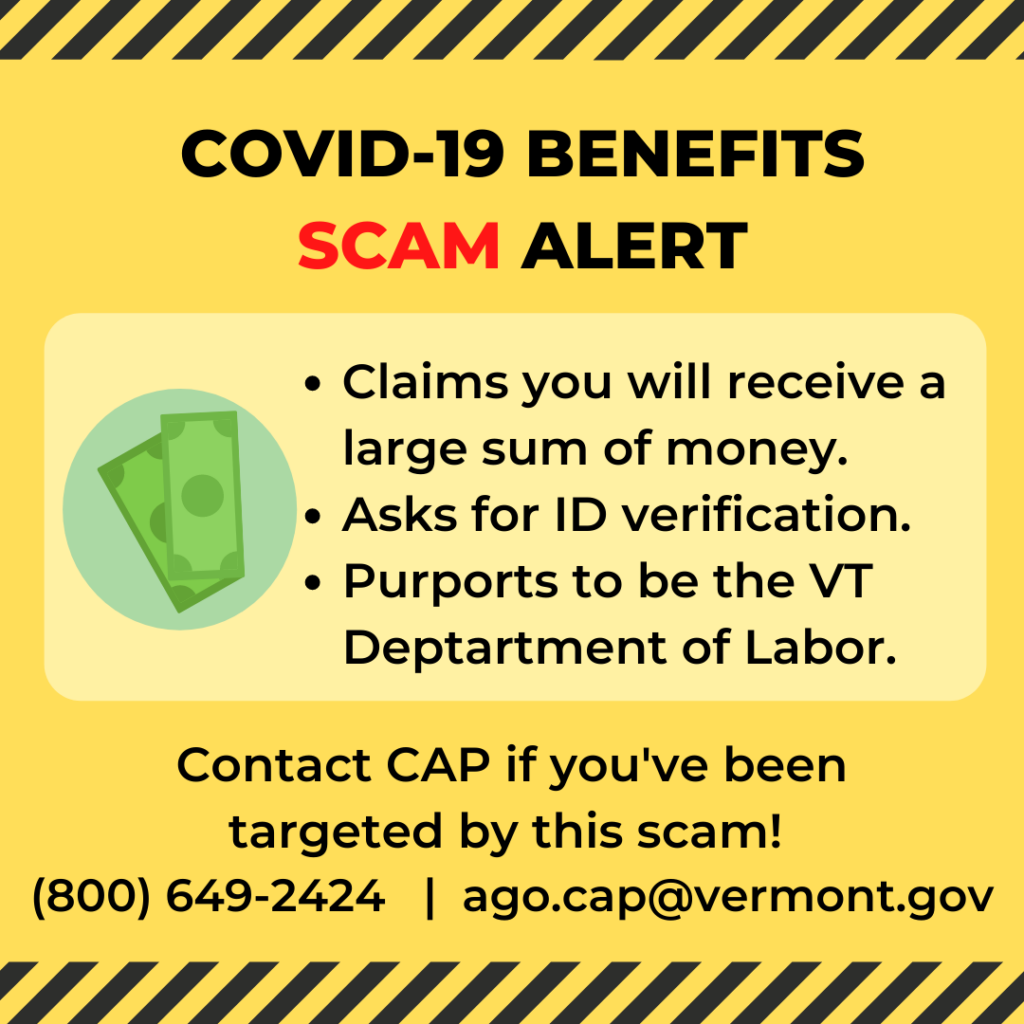By Crystal Baldwin
Nothing quite beats puppy snuggles to lift spirits and brighten moods. Though I speak now mostly from personal experience as the owner of a sweet cuddly chihuahua, Bobby, my sweeping generalization is based in fact. Loving on animals induces the cuddle chemical, oxytocin, giving the body a calming feel-good rush. Who couldn’t use a bit of pick-me-up right now?

I know I’ve been cuddling with my dog more. I feel lucky to have him and to have purchased him as a purebred puppy for the discount price of $225 from a legitimate breeder in Kentucky when I lived there. $225 was a steal for my companion. In retrospect, I would have paid much more for him and the joy he has brought my life. And realistically, I know many Vermonters do. They spend hours searching for the perfect pet to expand their family and when found, spare no expense to bring them home.
Sadly, scammers know this. They’ve devised skilled, deceitful plans to connect you with fake puppy companions, take your money, and give you nothing in return—except, perhaps, a broken heart. These scammers are mostly lurking in indiscreet corners of the internet, posting poached photos of someone else’s pets, claiming they are for sale and that they’ll ship them to you. Sometimes they’ll claim you can get the pet for the unbelievable price I paid, $225 or less. Sometimes they claim the pet is free but you must pay shipment fees or for medical complications that arose. Drawn by the plethora of adorable photos and the anticipation to snuggle your cutie, you send the money. The website looks legitimate and with all those photos, you never consider that this pup-for-sale is part of an intricately woven tale of fiction.

What are you to do then? News sources have reported more people are purchasing furry friends during the pandemic. While we’re tethered to our homes, online buying seems to make the most sense. What we’ve seen at the Consumer Assistance Program (CAP) through scam reports, however, is that when consumers purchase from online puppy sellers sight unseen, even from supposed Vermont businesses, folks are sending money and not getting a pet as promised.
The simplest way to avoid online puppy scams is to commit to “pet the pet” before turning over any money. If you don’t have the lovable furry friend in hand:
- Don’t wire transfer money
- Don’t give the seller gift card information
- Don’t send a peer-to-peer payment (Venmo, PayPal Friends/Family, Zelle)
- Don’t mail cash, money orders, or/checks
- Don’t give out automatic debit information of your bank account or read off a check number
- Don’t provide a credit or debit card number
- Don’t give the seller remote access to your computer
- Don’t secure the pet purchase by providing copies of your license or Social Security card.
I wish I had a better solution for you. I wish there was a magical website that connected each person to their pet family member. I wish I knew of a place in Vermont, or New England for that matter, where a person could buy a purebred puppy for as little as $225, like I did—believe me, I consider myself lucky. I am sad to say that I don’t. Absent this magical website, the best thing you can do is connect with people in your network and ask where they got their dogs. If your friends are like my friends, you will likely be referred to the Humane Society (Addison County Humane Society, Central Vermont Humane Society, Humane Society of Chittenden County, Franklin County Humane Society, Rutland County Humane Society, Springfield Humane Society, Windham County Humane Society).
Want to learn more about scams and scam prevention?
For more information about common scams and scams on the rise, we encourage you to utilize the following resources:
CAP Connection: Consumer Assistance Program Blog
Federal Trade Commission Scam Alerts
If you would like to help stop scams, consider being a CAP Cares Ally, by getting scam alerts and notices from our office and committing to sharing scam information with those in your community.
Get alerts from our office:
To receive scam alerts about scams on the rise in Vermont by phone call, text, or email, use the following link to sign up for Scam Alerts: https://ago.vermont.gov/scam-alerts-signup-form/. Need assistance signing up? Call the Consumer Assistance Program at 800-649-2424. We can help you sign up and we can assist if you have questions, concerns, or need help determining if you have been a victim of a scam.






